Found 29 results for Mitzvoth
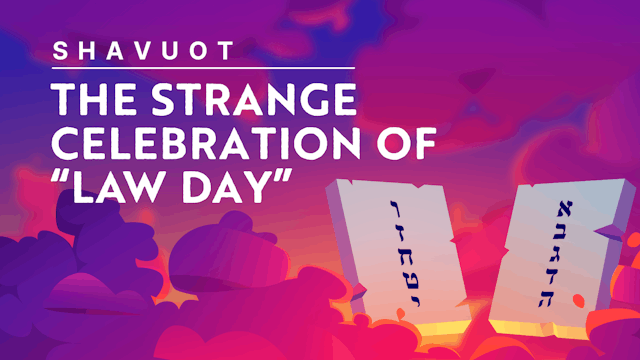
Why Is Shavuot Celebrated
↳ part 1 of 5 of the series "Why Does Shavuot Mean "Weeks"?"
"Shavuot! Laws!!! WOOHOO!!!"...said no one ever. So... why should we be excited about celebrating Shavuot? About the day when we honor the giving of the Torah? A super pious person might say: "We're rejoicing in the obligations that God placed upon us!", and while that sounds really nice and religious, let's get real: those laws are burdensome. So why are we pretending that they're so great? And when you think about when God imposed these mitzvot on us, you have to ask: Wasn't it pretty lousy timing? We received the Torah fewer than two months after leaving bondage in Egypt. It's like we just got done celebrating our freedom from one master, from Pharaoh, and all of a sudden, God swoops in and says, "It's nice being free, huh? BAM!! 613 laws. You answer to Me now. Say bye-bye to your freedom. How do you like that?" And... that's what we're celebrating on Shavuot??! Look, no one's suggesting that we defy God. He's... God. The laws are the laws. But do we really have to be excited about it? Watch this video and get excited about why we celebrate Shavuot. For real. Discover other great Shavuot videos at Aleph Beta, including ‘The Origin of Shavuot’, ‘Our Guide To Celebrating Shavuot’, and more Shavuot Divrei Torah & Videos!
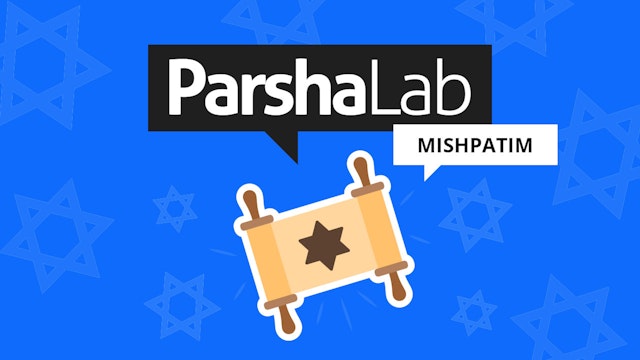
Mishpatim: The Ten Commandments… The Sequel?
This week, Imu guides Rabbi Fohrman into the myriad of laws of Mishpatim. He points out some subtle connections – both in theme, and in language – between these laws and the Ten Commandments, which we just heard last week, and asks, why? Why is there a replay of the Ten Commandments?
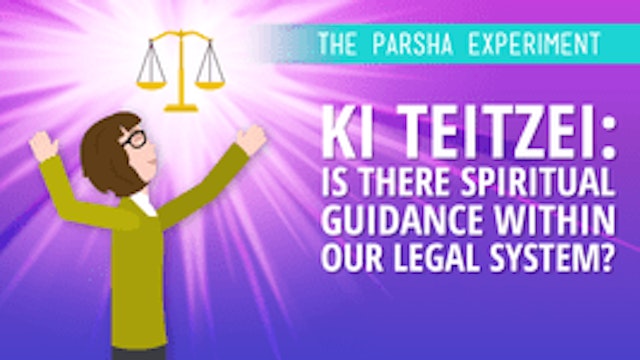
Ki Teitzei: Is There Spiritual Guidance Within Our Legal System?
Last parsha, we began to suggest that all of these random laws are somehow related to the 10 commandments! But what is the larger message that this list of laws is coming to teach us?
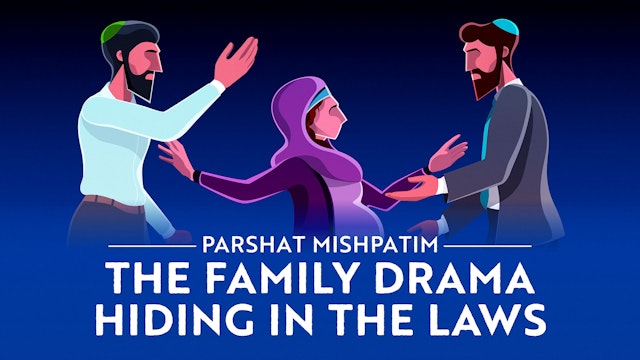
The Family Drama Hiding In The Laws
↳ part 1 of 2 of the series "How Can The Laws Of Mishpatim Help Correct Past Mistakes?"
After the riveting stories of the Exodus and the revelation at Mount Sinai, parshat Mishpatim hits us like a ton of bricks. It's got law after law about nitty gritty things like property damages and personal injuries. It's hard to relate to these dry, legal lists when they're put side by side with the Torah's most epic and memorable stories. But what if the laws aren't merely what they appear to be? What if these laws have something to tell us, a secret about one of the Torah's most familiar stories? Join Ami as he explores the stories hiding within these laws. To check out the Epilogue, click here, and read Ami's deeper discussion in his blog: Stories Become Laws, But Why Now?

Recalling the Past Through the Manna
↳ part 3 of 5 of the series "Why Does Shavuot Mean "Weeks"?"
Rabbi Fohrman delves into the Manna story and discovers deliberate echoes of a terrible episode experienced by the Israelites back in Egypt.

Manna as a True Gift
↳ part 5 of 5 of the series "Why Does Shavuot Mean "Weeks"?"
Rabbi Forhman discusses how the manna and its laws serve to undo the damage done by Pharaoh, preparing them to receive the Torah at Sinai.
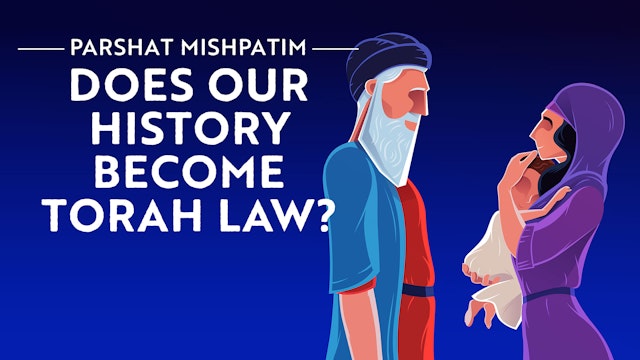
Does Our History Become Torah Law?
↳ part 1 of 2 of the series "The Surprising Source Of The Torah's Laws Of Murder"
Where do our laws in the Torah really come from? When God says: "Don't do this, do this" – what is the basis? Is it random, arbitrary? Is it an invention of God's mind that we're not meant to understand? Or might Jewish laws have some other rational basis? Rabbi Fohrman has a revolutionary idea, that many of the Torah's laws given to the Jewish nation were actually based off of the stories of our forefathers and foremothers. In this video, Rabbi Fohrman explores this through the laws of murder given in this week's Torah portion. To check out the Epilogue, click here.
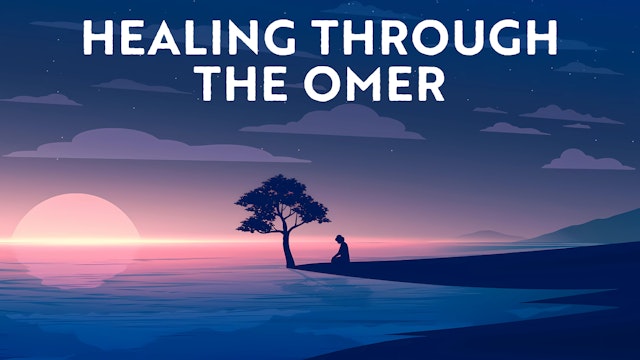
Healing from the Trauma of Slavery
↳ part 4 of 8 of the series "Sefirah, Prayer and Healing from Trauma"
Join Rabbi Fohrman and Immanuel Shalev, as they dive deep into Refa’einu, our prayer for healing, and its unexpected connections to Sefirat HaOmer. Could understanding this strange connection somehow uncover the key to praying to God as our healer? Could it provide the spiritual guidance a world battling COVID-19 deeply needs? In episode three, Rabbi Fohrman and Imu journeyed back to Egypt, for an in-depth account of the trauma the Israelites experienced there. In this episode, Rabbi Fohrman and Imu return to the story of Marah, to see if it reads any differently with this backstory in mind. What they discover is an incredible new meaning to God’s promise to be our Healer--a meaning that extends beyond individual healing to touch on the very essence of our national identity as caregivers to the world. Could it be that God’s promise to heal us is intimately bound up with our willingness to heal others? Listen to find out. To subscribe to Refa’einu vis RSS, copy this link and add it to your favorite podcast app: https://feeds.buzzsprout.com/1066483.rss
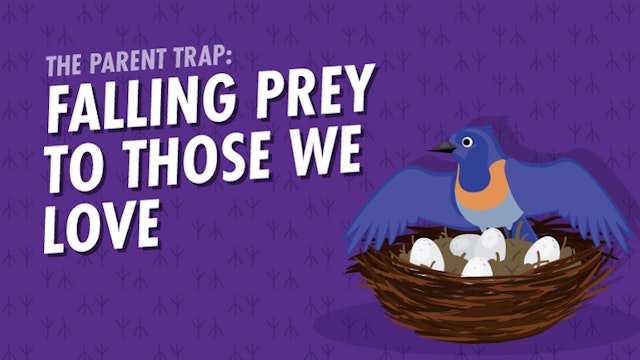
The Parent Trap: Falling Prey To Those We Love
↳ part 1 of 4 of the series "The Surprising Backstory Of Shiluach Hakan"
What is the law of Shiluach Hakan, The Mother Bird? How does it make sense for us to have a commandment to send away a mother bird in order to take her eggs? It seems like an odd commandment. Rabbi Fohrman examines the perspectives of both Maimonides and Nahmanides on this law and then comes up with a brilliant analysis that synergizes the two beautifully. Watch the course mentioned in this video: "A Hidden Message About Honoring Our Mothers: How To Merit Long Life."
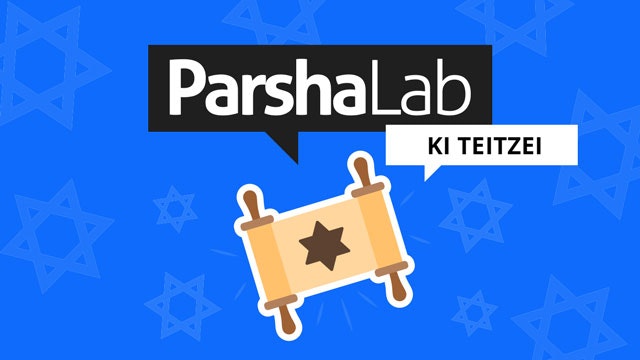
Parshat Ki Teitzei: Remember Amalek; Don't Forget
This week’s parsha includes the commandment to wipe out the memory of Amalek, the nation who attacked the Israelites just weeks after the Exodus from Egypt. It’s the kind of mitzvah that makes our skin crawl in the 21st century. Why would God command wiping out an entire people? What did they do that was so evil that they deserve to be completely erased from history? And why does the Torah use this cryptic language of memory and forgetting to give this command? Our parsha holds a surprising key for solving the Amalek puzzle, through a completely different mitzvah that touches on themes of memory and erasing. Looking at these two mitzvot together will open up a whole new way of understanding the battle with Amalek, what it meant for the ancient Israelites, and what it may mean for us today. Listen to Ami Silver and Daniel Loewenstein’s exploration of these ideas, and be prepared to never view this story the same way again.
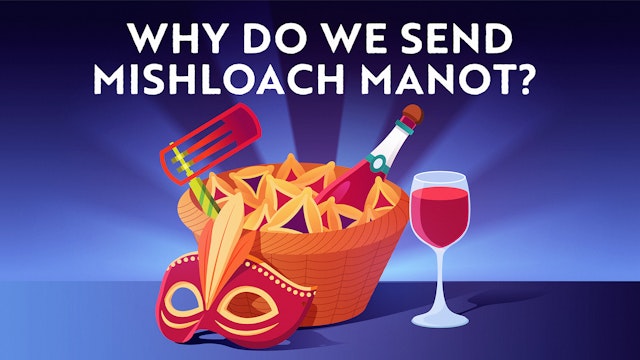
Matanot Levyonim
↳ part 1 of 2 of the series "Why do we send Mishloach Manot?"
Besides for reading the book of Esther, Purim is primarily celebrated through two mitzvot: Mishloach Manot and Matanot levyonim. Mishloach Manot is the practice of giving gifts to friends and family and Matanot levyonim is the act of giving gifts to the poor. But what makes Mishloach Manot and Matanot levyonim so unique to Purim? Sure these are great mitzvot to do – but why do them on Purim, specifically? Through a careful examination of the Purim story, Rabbi Fohrman explores the subtle whispers and foreshadows of these two mitzvot in the text. What emerges is a unique story of the discrete dialogue shared between Queen Esther and Mordechai during this period in the turbulent, Persian Empire. Join Rabbi Fohrman as he explores this fascinating backstory – and never give Mishloach Manot the same way again. Learn more about Purim at Aleph Beta by checking out some of our other videos including Taanit Esther, The Queen You Thought You Knew, and Why Did Mordecai Not Bow To Haman.
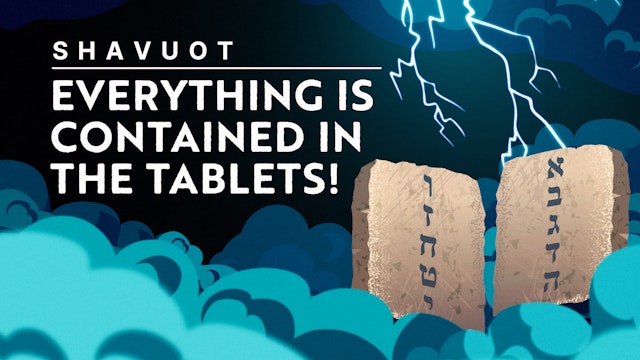
What Do The Ten Commandments Mean?
Why are the Ten Commandments important to Judaism? Do you ever wonder what’s so special about the Ten Commandments? Why were they singled out to be part of God’s momentous speech at Mount Sinai? Why do we make such a big deal about reading them on Shavuot, or putting them up in our shuls and on our courthouses? Why do we treat them as if they are somehow more special, or more fundamental, than all of the other parts of the Torah? The answer that’s often given is that they are more fundamental than the other parts of the Torah because they somehow represent the core ideas of the Torah. That every law in the Torah can be somehow reduced to one of these Ten Commandments. It’s as if these are the ten most essential concepts that God is trying to convey to us. So go with that theory for a second, and now ask yourself this: What if we told you that the Ten Commandments, these ten essential concepts, do express a fundamental Torah truth, but they aren’t actually ten? That the “ten commandments” are actually one single idea – the idea, the big, central message that God wanted the Israelites to hear, the one message that the whole Torah boils down to? The most core truth at the heart of all of Judaism, as it were? Don't you want to know: What's the one big idea?? Take a look at this course, in which Rabbi Fohrman approaches the Ten Commandments almost as an archaeologist, identifying multiple hidden layers that are baked into the text, peeling them back one by one, and revealing the single core truth that lies beneath them all. Discover other great Shavuot videos at Aleph Beta, including ‘The Book of Ruth Explained’, ‘The Scandalous Backstory of Boaz & Ruth’, and ‘Why Do We Celebrate Shavuot Laws’
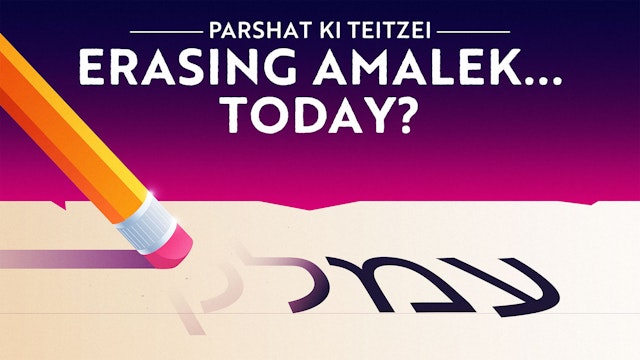
Erasing Amalek...Today?
The mitzvah to wipe out the memory of Amalek is one of the most troubling and confusing commandments in the Torah. How could the same Torah that states that humanity is created in the Divine image, also command us to wipe out an entire nation from the face of the earth? It seems like a brutal and violent command, that doesn't sit comfortably with our religious and moral sensibilities. And in our day and age, when there is no nation of Amalek to speak of, how are we supposed to relate to this mitzvah? Is it just a remnant of an archaic past? Or is there some lasting message, something relevant and important about this mitzvah, even today? In this video, Ami explores the larger context surrounding the mitzvah of mechiyat Amalek – to erase Amalek's memory. Surprisingly, it turns out that there is another mitzvah that appears just a few verses earlier than this one that also speaks about erasing a legacy. This video explores the relationship between these two mitzvot to uncover a profound and deeply relevant message about the mitzvah to erase Amalek's memory, even in our day and age. Watch the course mentioned in the video: The Rise of Antisemitism: A Glimpse Into Amalek’s Tortured Soul